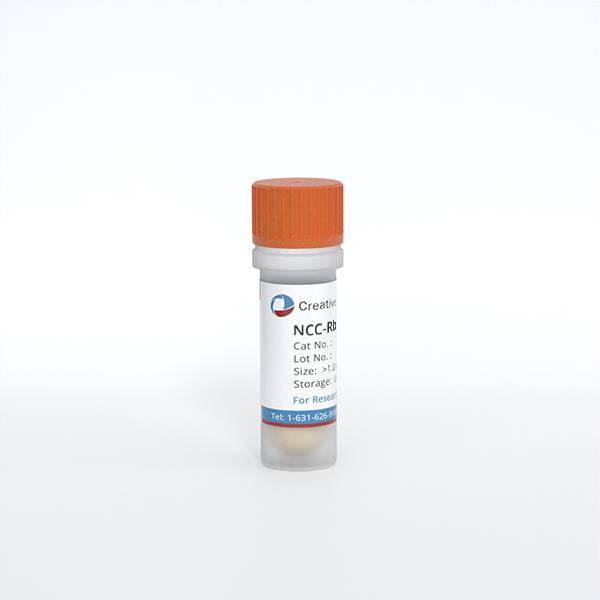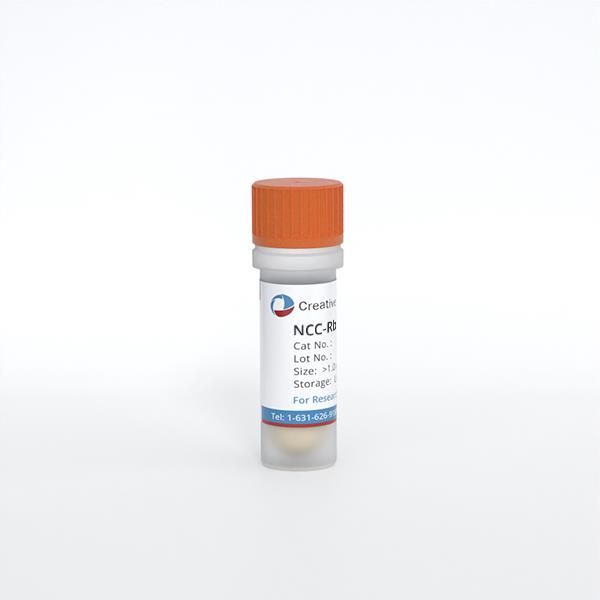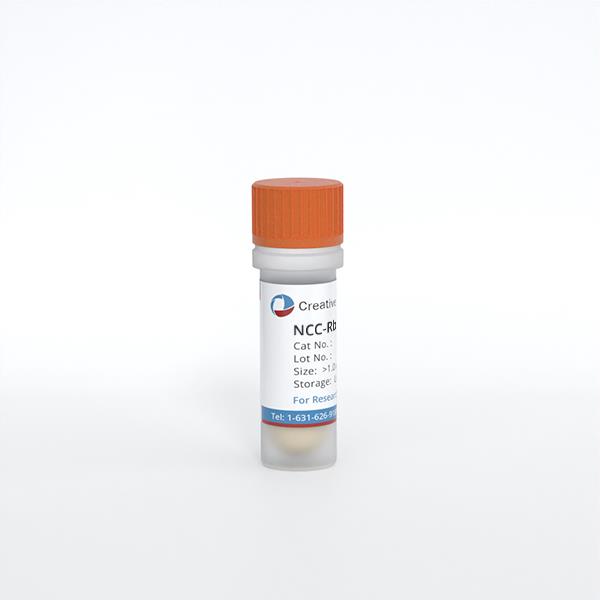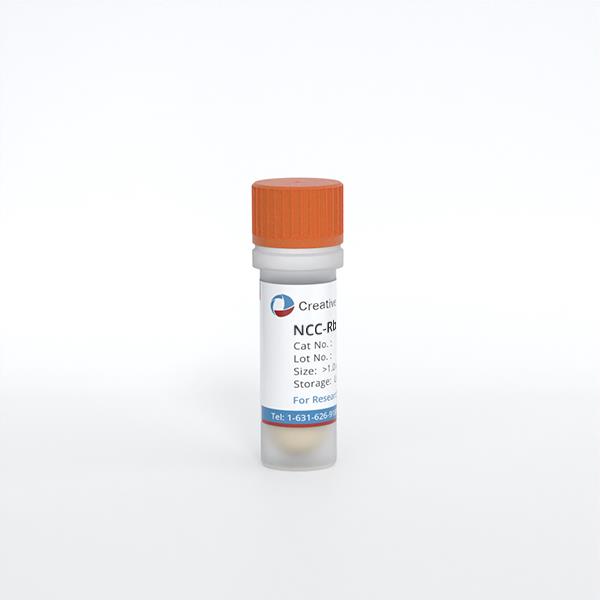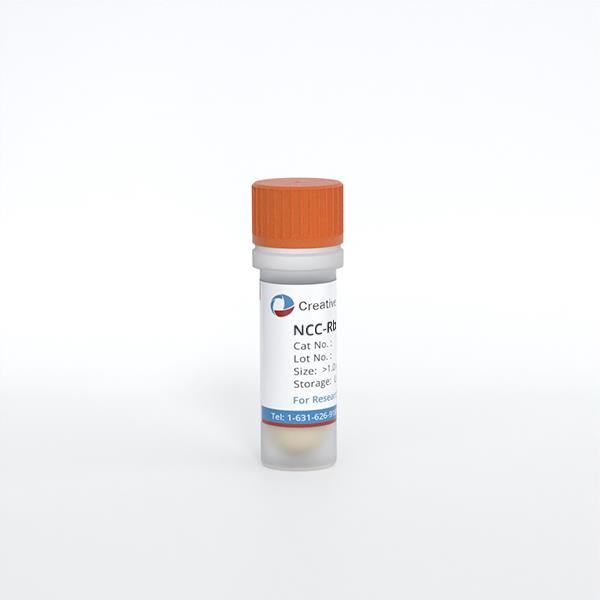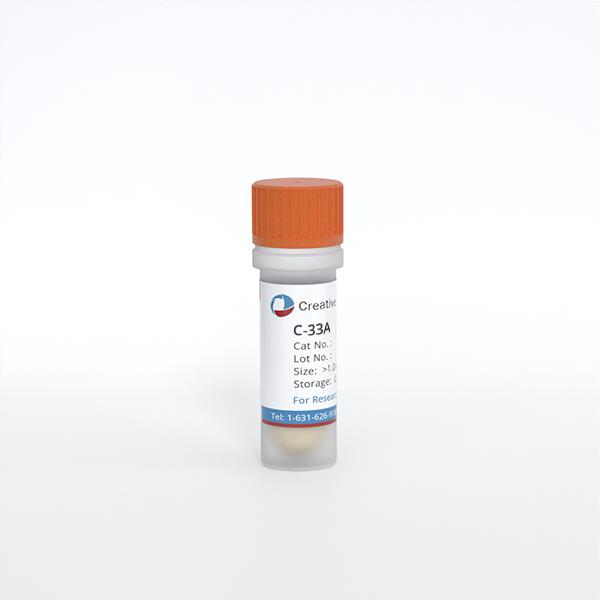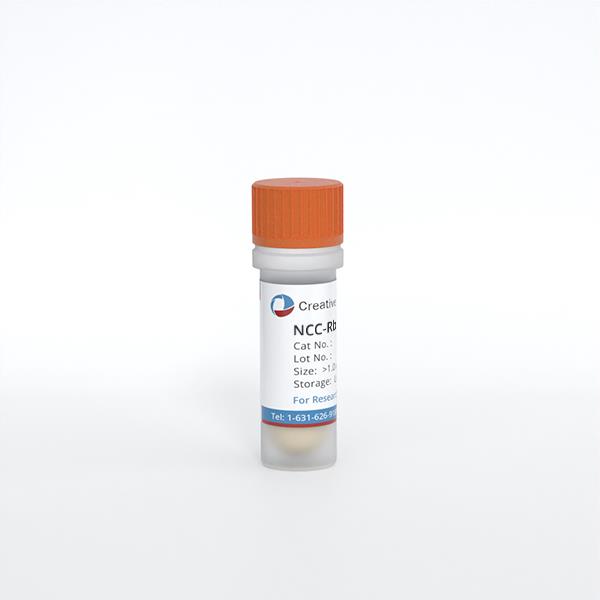
NCC-RbC-92
Cat.No.: CSC-C6732J
Species: Homo sapiens (Human)
Source: Eye; Eye Socket
Morphology: Lymphoblast-Like
- Specification
- Q & A
- Customer Review
Cat.No.
CSC-C6732J
Description
Human retinoblastoma cell line.
Species
Homo sapiens (Human)
Source
Eye; Eye Socket
Recommended Medium
CMRL1066 medium +10-15%FBS (100 μM Glutamine, 200 μM Sodium pyruvate and 20 μM 2-mercaptoetanol)
Morphology
Lymphoblast-Like
Disease
Retinoblastoma
Storage
Liuqid Nitrogen, -180°C.
Shipping
Dry Ice.
Synonyms
NCC-RbC-R92; R92
Citation Guidance
If you use this products in your scientific publication, it should be cited in the publication as: Creative Bioarray cat no.
If your paper has been published, please click here
to submit the PubMed ID of your paper to get a coupon.
Ask a Question
Write your own review
- You May Also Need
Related Products
Featured Products
- Adipose Tissue-Derived Stem Cells
- Human Neurons
- Mouse Probe
- Whole Chromosome Painting Probes
- Hepatic Cells
- Renal Cells
- In Vitro ADME Kits
- Tissue Microarray
- Tissue Blocks
- Tissue Sections
- FFPE Cell Pellet
- Probe
- Centromere Probes
- Telomere Probes
- Satellite Enumeration Probes
- Subtelomere Specific Probes
- Bacterial Probes
- ISH/FISH Probes
- Exosome Isolation Kit
- Human Adult Stem Cells
- Mouse Stem Cells
- iPSCs
- Mouse Embryonic Stem Cells
- iPSC Differentiation Kits
- Mesenchymal Stem Cells
- Immortalized Human Cells
- Immortalized Murine Cells
- Cell Immortalization Kit
- Adipose Cells
- Cardiac Cells
- Dermal Cells
- Epidermal Cells
- Peripheral Blood Mononuclear Cells
- Umbilical Cord Cells
- Monkey Primary Cells
- Mouse Primary Cells
- Breast Tumor Cells
- Colorectal Tumor Cells
- Esophageal Tumor Cells
- Lung Tumor Cells
- Leukemia/Lymphoma/Myeloma Cells
- Ovarian Tumor Cells
- Pancreatic Tumor Cells
- Mouse Tumor Cells
Hot Products
